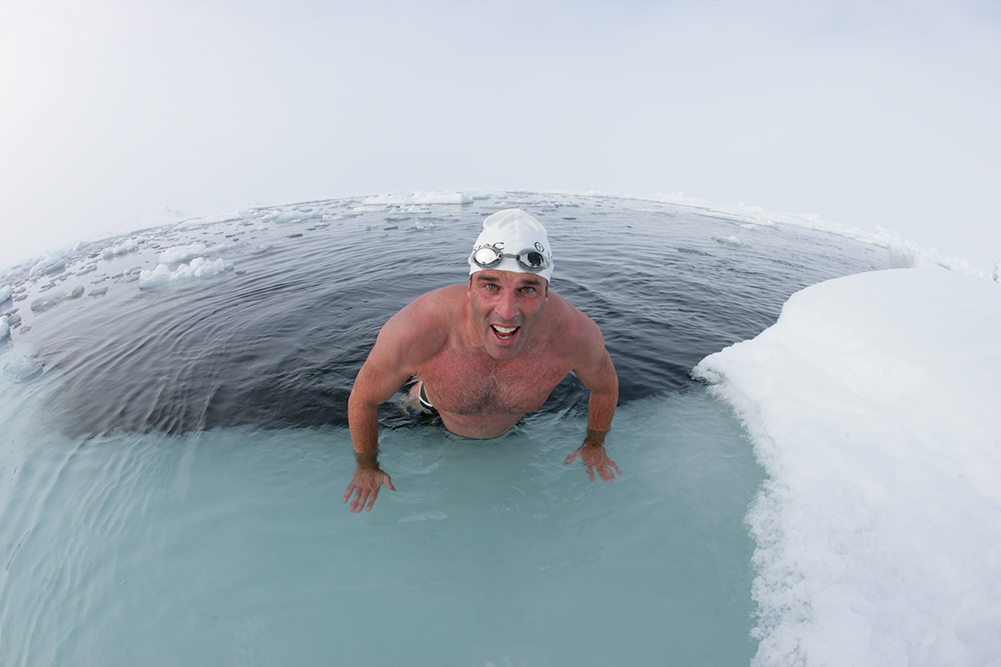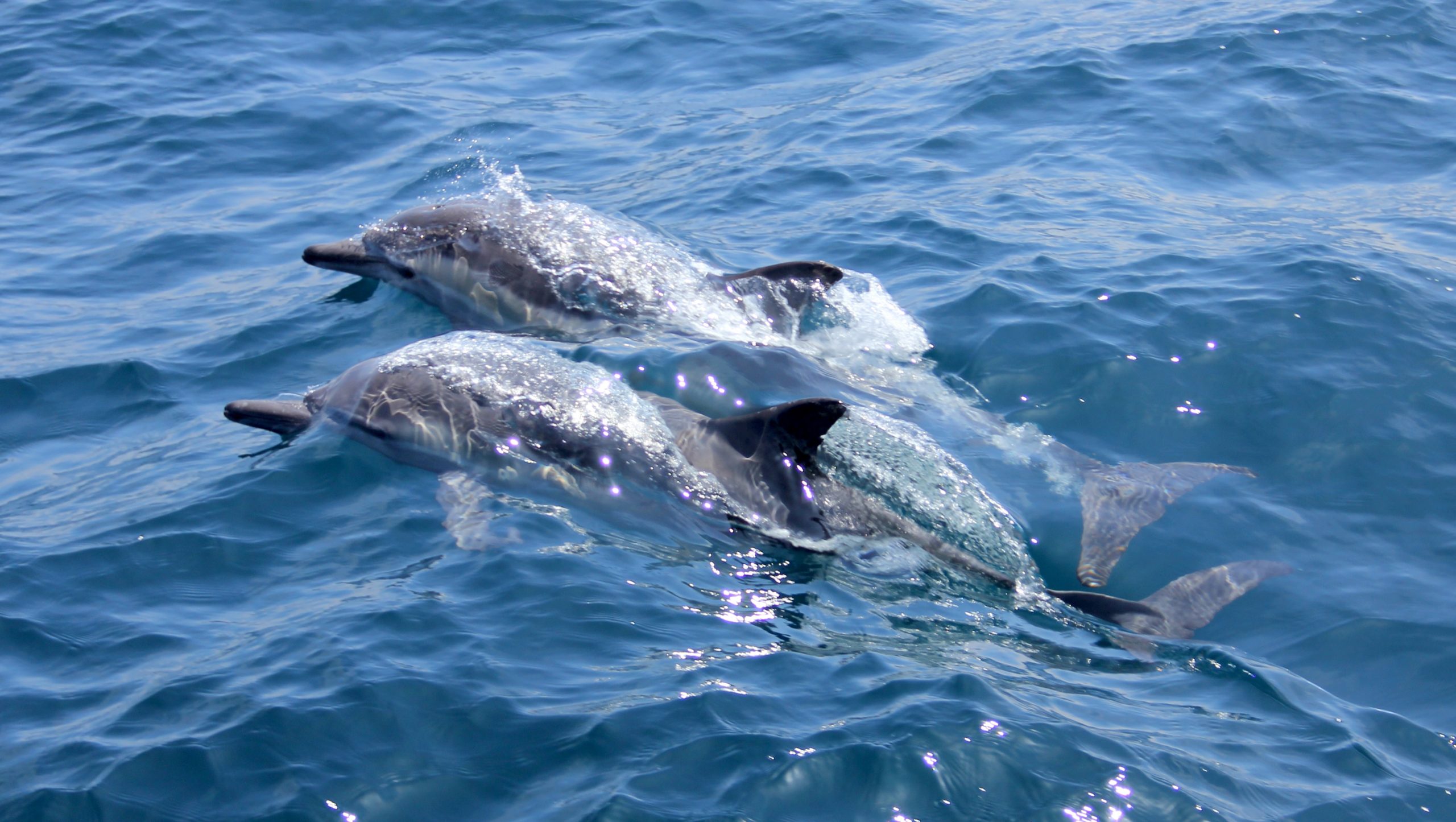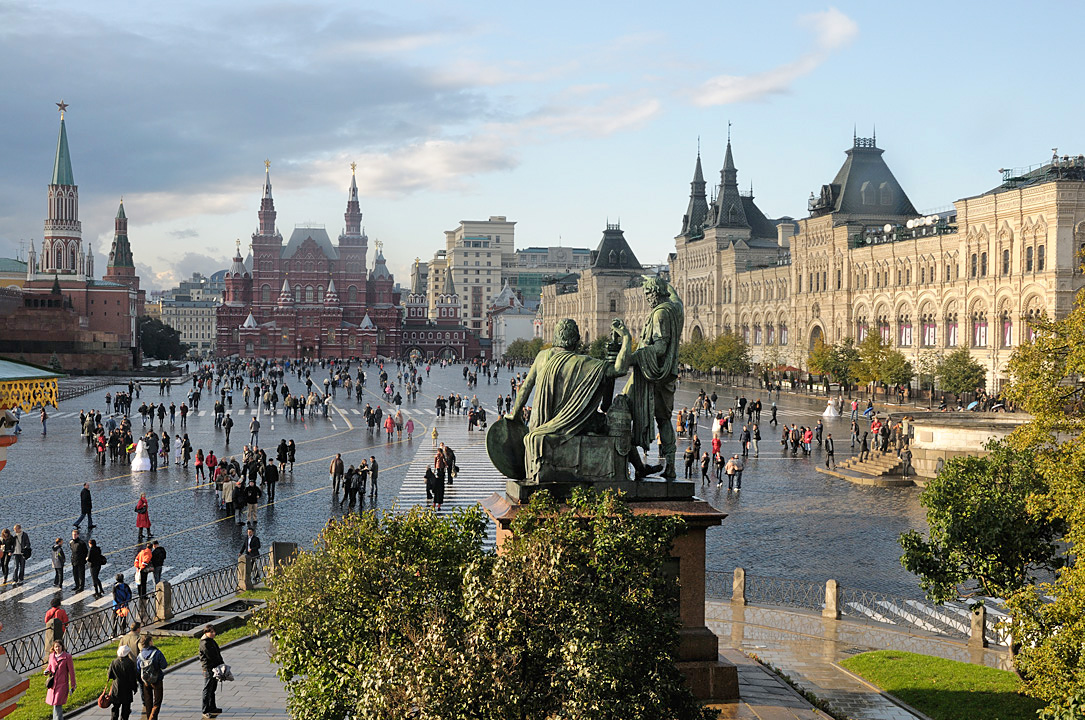Even if everyday life and running a business isn’t anywhere near as cold or alarming as the prospect of plunging into the Arctic Ocean in nothing more than a pair of Speedos, everyone faces doubts. So, the resilience Lewis Pugh needed to swim at the North Pole can be learnt from by us all and applied in various environments when it seems that the only option is to give up and call it a day
It’s January and the festive season has passed now, which means the majority of Brits will be back to work – if they actually had any time off at all. But with the merriment and joy that Christmas is typically associated with now behind us and nothing major on the calendar aside from the positively gloomy Blue Monday, now seems an appropriate time to share a motivational story I was present for the end of 2019.
Risk assessment
Admittedly, when I attended Investor Allstars, an awards ceremony dedicated to the investment space, having “ocean advocate” Lewis Pugh delivering the keynote struck me as a maverick choice. But having sat through his 25-minute speech detailing why and how he took on the first ever human swim across the North Pole – something many told him was “absolutely impossible to achieve” – there are many lessons, for life and business, that can be taken away from his 2007 exploits in sub-zero waters. Describing the location as “a very high-risk environment,” the first thing to highlight is that’s also a term many would have for entrepreneurship and investment. As confident as you are something can be a success, it’s inevitable that you can be met by difficulties along the way, while naysayers may attempt to burst that bubble.
Revealing that the icy terrain’s appearance alone made him feel as though he’d “never seen anything which looks so frightening,” the temperature of the water was even more terrifying. From noting the practically bath-like temperatures of Olympic pools that are set at 27°C and the balmy 18°C of the English Channel in summer, Pugh offered further context. “Drop all the way down to 5°C and that’s the temperature of water into which the passengers of Titanic jumped and perished,” he said. “But this water is even colder – it’s -1.7°C. No human had ever done this swim before in anywhere close to this water temperature.”
Fear and doubt
The night before the big day, the team thought it’d be wise to do a test swim and assess the conditions. Walking onto the ice with his coach David, Pugh then leapt into the ocean. “There’s a fine line between fear and panic,” he opined. “Fear is healthy – it sharpens you up, especially in the water, which is absolutely deadly. But the first one minute into the swim was just panic, I was gasping water. By the end of the second minute I could feel my fingers starting to freeze.” The third and fourth minutes resulted in control of his arms being lost and then the feeling in his legs diminishing. His team yanked him from the water, at which point Pugh started screaming for the goggles to get taken off his face. “Then I looked down at my fingers and just couldn’t believe what I was seeing – when water freezes it expands and the cells in my fingers had frozen and expanded; my fingers looked like sausages,” he said.
Finding himself thrust back onto the ship and into a red-hot shower by his doctor, it took 50 minutes for him to defrost from a tenth of that time in the Arctic Ocean. “And like a fool I had told BBC, CNN, Sky News, Al Jazeera, all of them, that I was going to do a 1km swim across the North Pole to graphically show leaders the Arctic is now melting so quickly because of climate change that you can even do a swim there,” Pugh remembered. “And at that moment I realised that this dream was absolutely impossible.”
Exiting the shower and making his way to the dining room where his team was sat in silence, Pugh realised when he grabbed his knife and fork that he couldn’t feel sensation in his hands. After eating and retiring to his cabin, restlessness consumed him as hours passed by with Pugh unable to sleep. “The Inuit people, the indigenous people who live in the Canadian Arctic close to the North Pole, say that ‘In every single person, there is a battle taking place in your mind between two wolves – a good wolf and a bad wolf,’” he detailed. “Which wolf is going to win? It’s the wolf that you feed.” Pugh came to the realisation he had indeed stuffed the bad wolf with a banquet of worry while the good wolf was left ravenous and in desperate need of a hearty meal of hope.
After just an hour or so of sleep, his coach was knocking on the door at 6am, at which time Pugh told him the swim was impossible – something he refused to accept. “He said ‘No, Lewis, the swim is possible.’” Pugh’s response was priceless and left the audience laughing. “I said to him, ‘With all due respect, David – there was only one of us in the sea and that was me. This swim is impossible.’”
Mind over matter
Doing what all good coaches and mentors do best, David refused to accept the doubt and offered some words of wisdom, which anyone can take on board whenever they feel like giving up on something they’ve worked long and hard to achieve. And it’s a reminder that whether you’re a founder, investor or innovator, you’re going to need someone else in your corner through the hard times as well as the good ones. The motivation he had for Pugh came in the form of two anchors (figurative not literal, of course).
The first anchor was encouraging the swimmer to walk back to the start of his life and replay all the key moments that made him the person he is. The second was encouraging Pugh to walk to the end of his life and ask why they’re at the North Pole. Pugh added: “He said ‘We have this one opportunity now when we arrive at the North Pole to send a message south. What is happening high in the Arctic will impact every single person on the planet, every future generation and the whole of the animal kingdom – I urge you Lewis, please find that courage deep down inside you.’” With the rousing sermon finished, he left the cabin for Pugh to gather his thoughts.

Soon enough, Pugh was given further motivation, this time of the visual and tangible kind, as the boat arrived at the North Pole. “I remember looking out and everywhere there were these enormous open patches of sea and this was the first time in human history that the North Pole had unfrozen,” he said, while his doctor pondered what it would look like in another 50 years if the world keeps on going the way it is through climate change.
The power of your people
But despite knowing how important the quest was, Pugh was also unnerved when he noticed his doctor’s hands were shaking upon putting his heart rate monitor in place. “Now when one of the world’s top doctor’s hands start to shake, you think to yourself ‘Are you really sure you want to do this?’” he said. But rather than let that moment consume him, it gave Pugh a rush of empathy. It’s something that isn’t always easy when you’re forever chasing results and outcomes, but it’s evidently important to breathe and take stock of the team. “I began to realise in that moment what everyone else was going through,” Pugh added. “I looked to him and said, ‘I want you to know how very grateful I am to you – not many doctors would take this type of risk’. And always the gentleman, he said Lewis, ‘It’s a privilege – but let’s just get this bloody swim over and done with.’”
However, just as that obstacle was leapt over, Pugh made “the most stupid mistake” yet as they left the ship – he walked to the edge of the water and gazed within it and saw nothing but blackness. “It was so frightening I had to take a step back,” he said. Then, right on cue, came his coach David with a series of flags tucked beneath his arms as he informed him of a new idea. “Now, I’m not the type of person who trains five years for a swim and then ten minutes before we start wants to change the plan,” said Pugh. “But he’s very persuasive.“ His coach went on to reflect that the entire Pugh team of 29 people came from ten nations overall, with the idea being that he would place a flag at every 100m mark. Recalling what he was instructed, Pugh detailed how David said: “’I want you to slow down and look at that flag and think about all the men and women from that nation who’ve inspired and helped you so much to be here today – and when you’ve done that, swim 100m till you get to the next flag and so on and so forth until you get to the end.’” His coach admitted that it was “crushingly obvious” the swim would look impossible, but he believed in Pugh’s abilities.
“I thought this was a fantastic idea, this was very inclusive,” said Pugh. “This wasn’t just a British expedition. It was an expedition made up of people from ten nations. We’d also broke this thing down into manageable chunks.” Indeed, truly this would be the best possible answer to the question of how do you eat an elephant? What happened next hadn’t been accounted for though – a debate over which flag should go first. Pugh was less concerned about that – for him, it was about assessing which flag should occupy the 900m mark. “I’m as guilty as anybody else, but sometimes in life things are so tough and difficult that we often give up at the 900m mark and when you do that, a number of consequences flow as a result of that simple decision which have long-lasting implications,” he offered.
One of the results from quitting is that you may as well have sat on a beach with your feet up instead of wasting so much time that resulted in nothing, said Pugh. The other is that you’ll forever kick yourself because you were so close to achieving your dream. The final and most poignant consequence is that “quitting could very easily start becoming a habit.” So which flag would he stare down at the penultimate moment of achieving his dream? “We were very lucky, we had an Australian on the team; Jason Roberts, who was a cameraman on the expedition,” he said. Reflecting on his British-South African background, he pointed to the rivalry both nations have with Australia. “In fact, it seems there’s a fierce rivalry between almost every country and Australia,” Pugh continued to laughter from the crowd. “So, I leant down, picked up the Australian flag and said to my coach, ‘Let’s put the Australian flag at the 900m mark because there’s no way on this earth I will ever every give up in front of an Australian flag.’”
The pioneer’s plight
Finally, the moment to complete the swim was upon them but Pugh’s mind still wandered. “The world is divided between pioneers and followers,” he said. “You’re either a pioneer or you’re a follower – and if you’re a pioneer you don’t know what’s going to happen until you dive in because nobody has been there before. And so that worry and angst is all on you and I could just feel this angst building up inside my stomach.” Consumed by this notion of uncertainty, Pugh was frozen into place. Panicked, he then made a request to his coach. “I turned to David and said ‘Please, for God’s sake, if things go horribly wrong, don’t let me do the full 1km, pull me out after 500m.”
It was time for one final mental push from the coach. “He pulled me away from the edge of the ice and said ‘What are you doing, Lewis? If you dive into this water preparing to swim 1km but also thinking about getting out halfway, you are going to be confusing the most important part of you – your subconscious. Because you are preparing for victory and defeat in your mind at the same time. Now is the time to believe – in yourself, in us as a team, and to carry your message. There is nothing more powerful than a made-up mind’. We walked back to the edge of the ice and then I dived straight into the Arctic Ocean.”
You’ll notice that there are some key themes throughout. Ambition, doubt, belief, fear and, crucially, people. All of these are part of a journey in life and running a business. You can’t succeed alone, but indeed you can’t do so without conviction and passion either. Getting your head in the game and really focusing on your dreams can lead to greatness. Concluding, Pugh offered three key takeaways from the journey:
(1) The importance of having a very, very clear and simple vision.
(2) How essential it is to choose the very best people you can and form a team wisely – and having an Australian on board can really help.
(3) In what he considered the most important of all, Pugh pointed to having a true purpose to what you’re doing.
Wrapping up, he finalised: “There are actually very few things that are truly impossible to achieve if you have a very clear vision in your heart and mind.”
Image source: Lewis Pugh





